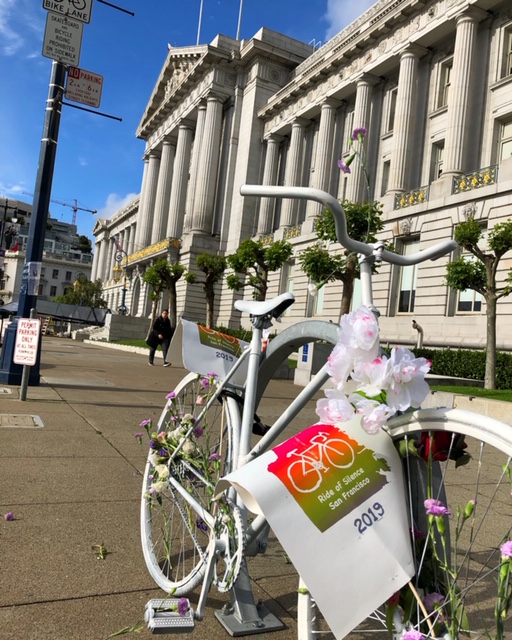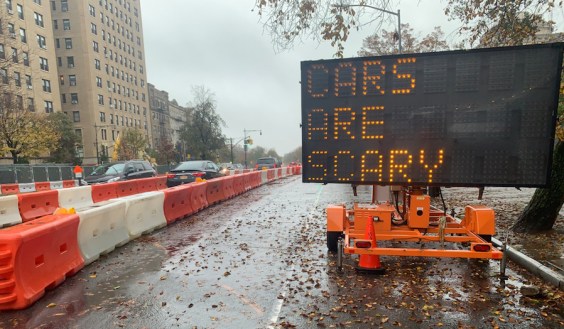There's a lot at stake for metro Atlanta on July 31. That day, voters will go to the polls to decide the fate of a proposed one percent sales tax that promises some $8 billion in transportation funding, to be split relatively evenly between transit and road projects over 10 counties. If it fails, experts warn, the only fundable transportation project going forward could be toll roads.
Early voting started last Monday and poll results have been all over the map. Some have shown the referendum trailing badly and others give passage a slight edge -- but with high rates of undecided voters.
It's been a long, heated campaign. Promoters of the spending package, namely the local chamber of commerce, have spent some $8 million crafting a message they hope will sway the public. But the issue has been divisive. An odd coalition of opponents has come together including the local Sierra Club, the DeKalb County NAACP and the Tea Party Patriots, according to WSB in Atlanta, raising objections to everything from road expansions to the lack of rail investment in communities of color to the whole premise of raising taxes.
But if there's one thing everyone agrees on it's that Atlanta has a big problem when it comes to transportation. The Metro Atlanta Chamber of Commerce has called the region's notorious gridlock the biggest threat to the region's prosperity. Four years ago, Forbes said that the city's traffic problems are the worst in the country, noting that only five of the 13 counties that make up the Atlanta region even have transit service.
And that was before a budget crisis did away with transit in Clayton County, just south of Atlanta -- where the household per-capita income is less than $20,000 -- roughly two years ago. Meanwhile, MARTA, Atlanta's underwhelming rail system, is dealing with a crisis of its own. While $600 million from the referendum would be earmarked for MARTA maintenance, that still leaves the agency with a projected $2.3 billion backlog over the next 10 years, just to keep its system in working order. Its reserves are set to expire next year. MARTA is the largest transit system in the country that receives no state support.
"Part of what has made this city so great is a sense of excitement about the future," real estate executive Clark Gore, of Cassidy Turley, wrote in the Atlanta Business Chronicle, "but unless we deal with our traffic, our best days may be behind us."
A leading corporate site selection expert told the AJC that the referendum is "one of the most vital votes" in metro Atlanta's history. "Atlanta's way past due in addressing its traffic problems," said Dennis J. Donovan, principal with WDG Consulting in Bridgewater, New Jersey. "It's probably one of the last major metro areas that's failed to address this issue adequately."
The Atlanta Regional Commission, the region's metropolitan planning agency, says the proposal will be a boon for sustainability and the economy. An ARC study found that the spending package -- with 52 percent devoted to transit and 48 percent to roads -- was likely to produce an improvement in air quality equal to removing 72,000 vehicles off the roads each day. That benefit comes largely from increased transit trips, which ARC estimates would rise from 417,000 to 580,000 per day. In addition, the study concluded that new construction and productivity gains would inject $34.8 billion into the area's economy over the next three decades.
According to Atlanta-based transportation experts, this referendum is transit's only chance at funding. The AJC quotes Mike Meyer, former head of the national Transportation Research Board, saying, "If the referendum does not pass and there's no alternative, reliance on toll roads is going to become more important." Harold Linnenkohl, a former commissioner of the state Department of Transportation, agreed: "That is probably the only thing that is left out there" that can get funded. The AJC explains why this is transit's last chance:
Beyond the proposed sales tax, there is no existing source of money for major transit projects. The state gas tax legally cannot be spent on mass transit. County taxes can, but county budgets are stretched as it is, and so is the state's general fund.
The referendum includes 157 projects, including some innovative ones that could go a long way toward "untying" Atlanta. More than $600 million will go toward the Atlanta Streetcar and the Beltline plan -- a groundbreaking circular passenger rail line and greenway system that would link 44 neighborhoods. In addition, Clayton County would receive $100 million to revive its transit system. The regional Xpress bus service for commuters would receive another $100 million. Finally, the plan would build light rail to Emory University and the Centers for Disease Control -- the region's largest employment center -- as well as to suburban Cobb County.
The roads side of the package would provide $365 million for the first phase of Atlanta’s second outerbelt, known informally as the Northern Arc, through exurban Gwinett County. This is what irks the Sierra Club.
Some sustainable transportation advocates have been fighting that project for 10 years. "Gwinett County pushed it forward. That is their baby,” said Ashley Robbins, president of Citizens for Progressive Transit.
Nevertheless, Robbins' group is campaigning on behalf of the spending package. She says the road spending is mostly limited to repairs and safety improvements. “There are very few new miles,” said Robbins. The roads package would also provide funding to rework the intersection of I-85 and I-28 in DeKalb County, north of Atlanta — the tangle of raised highways known locally as Spaghetti Junction.
The fate of the referendum will likely come down to the way DeKalb County and Fulton County vote. These are the two counties that contain Atlanta and combined they have 40 percent of the region's vote. But Atlanta's urban counties aren't as fully sold on the plan as referendum supporters would hope, reports the AJC.
"The strategy for passage of the transportation sales tax has been based on keeping the vote close in GOP strongholds such as Cobb and Gwinnett counties, then running up the score with strong African-American support in Atlanta and areas south of I-20," wrote the AJC's Jim Galloway last month.
But recent polls showed support for the proposal in Fulton and DeKalb was barely 49 percent. Both counties would also receive a slightly greater share of the revenues than they contribute, according to Robbins. Advocates are trying hard to sell that message in the coming weeks.
"If you can pass in Fulton, DeKalb and Clayton [counties] you could win it," said Robbins.







